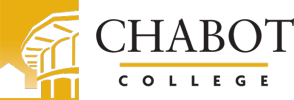
Persuasive and Rhetorical Communication
This program map from the 2024-2025 catalog year represents one possible pathway to complete this program. Your pathway may vary depending on your transfer plans and also previous college credit, including AP Test scores, concurrent enrollment courses and high school articulated courses.
I'm ready to get started. What do I do next?
- Review this program map to get an overview of the required courses
- Meet with a counselor to develop your customized student education plan www.chabotcollege.edu/counseling
- Use DegreeWorks, an online student education planning tool, to track your progress toward graduation www.chabotcollege.edu / admissions / degreeworks
This certificate develops student skills to become strong communicators by providing a foundation in the available means of persuasion (Rhetoric).
What can I do with this major?
Communication skills are vital in all industries. In particular, students who study Rhetoric often go into legal careers, but many students pursue careers in advertising, public relations, film, tv, and other emerging technological fields. Rhetoric students are often very successful in gaining acceptance into graduate programs, especially in Communication, Business, Law, and Media Studies.
Learning and Career Pathway
- Communication, Language & Media
Icon Key
Semester 1
COMM
C1000
Introduction to Public Speaking
COMM
46
Argumentation and Debate
Semester 2
COMM
20
Persuasion and Communication
COMM
48
Activities in Forensics
List A course
List A
Choose 1 course from the list below: